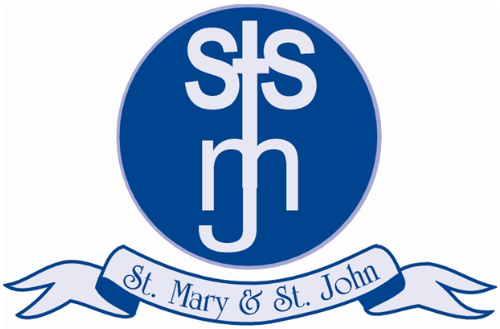Computing
-
Intent
Why our Computing Curriculum looks like this?
At St Mary and St John, we aim to provide a high-quality Computing education, from EYFS right the way through to Year 6, that prepares our learners for their future by giving them the opportunities to gain knowledge and develop skills that will equip them for an ever changing digital world. With technology playing such a significant role in society today, we believe it is important children develop their computational thinking skills to be able to participate effectively and safely in this digital world. Our curriculum, which begins with children in Early Years exploring the world around them and technology they use on a regular basis, will provide children with key knowledge about how computers and computer systems work, how they are designed and how they are programmed. The Computing curriculum focuses on a progression of skills in digital literacy, computer science, information technology and online safety to ensure that children become competent in safely using, as well as understanding, technology. These strands are revisited repeatedly through a range of themes during children’s time in school to ensure the learning is embedded and skills are successfully developed. At St Mary and St John our intention is that Computing also supports children’s creativity and cross curricular learning to engage children and enrich their experiences in school.
-
Implemention
How is Computing taught at St. Mary and St John Catholic Primary School?
• In Early Years, to help develop their computational thinking and understanding, children will learn how to show resilience and perseverance when facing a challenge, develop their fine motor skills to be able to competently use a range of tools safely and confidently, and be able to explore a variety of artistic effects to express their ideas and feelings.
• Using the Purple Mash and Teach Computing scheme of work as starting points, teachers plan effective, engaging and creative lessons that enable all children to access the Computing curriculum, regardless of age or ability, in a way that supports the learning of individual pupils.
• Supported by a clear progression of skills and knowledge, teachers can ensure that learning is fully embedded before being built on as the children journey through school.
• To ensure a broad range of skills and understanding, Computing is taught across three main strands: digital literacy, computer science and information technology.
• As part of information technology, children learn to use and express themselves whilst developing their ideas through ICT, such as writing and creating multimedia presentations.
• Within digital literacy, children develop practical skills in the safe use of ICT and the ability to apply these skills to solve relevant and meaningful problems.
• In computer science we teach children to understand and apply the fundamental principles and concepts of computer science, including abstraction, logic, algorithms and data representation. We also develop the ability to analyse problems to computational terms, and have repeated practical experience of writing computer programs.
• Throughout each Computing topic, children are provided with a range of computing vocabulary to support children in their understanding.
• At St Mary and St John online safety is taught across school in a manner that is sensitive to the needs and experiences of the children. Online safety procedures are communicated with all staff and parents.
• With the use of a full class set of ipads and/or the computer suite, children can use and apply their computing knowledge and skills across a wide range of cross-curricular opportunities
-
Impact
How will we measure the impact of our Computing Curriculum?
• At St Mary and St John Catholic Primary School, we use the Purple Mash Computing Assessment Tracker and the Teach Computing Assessment Tracker to determine children’s development of skills, understanding and informs teachers planning.
• This is completed on a termly basis by the class teacher, and is shared with Subject Leaders and SLT.
• Subject Leaders also carry out regular learning walks, Book Looks, lesson observations and pupil discussions. Book Swaps are a regular feature in our Staff Meeting time.
• Action Plans are reviewed termly by Subject Leaders and shared annually with Governors.
-
Aspirations
The broad range of subject-specific knowledge developed in our computing
lessons equips pupils with experiences that will benefit them in secondary
school, further education, future workplaces and home life. From research
methods, use of presentation and creative tools, critical and computational
thinking, and being safe online, computing at St Mary and St John gives
children a love of the subject as well as building blocks enabling them to
pursue a wide range of interests and vocations in the next stage of their lives
Meet The Subject Coordinator

Coming Soon
Computing Coordinator
My passion/ personal experience with Computing
My passion for Computing comes from a love of technology, and being able to use technology to enhance the classroom and learning experience. Keeping up to date with the latest educational technological developments ensures our curriculum is relevant, meaningful and prepares our children for the future of an ever-changing digital world.
Experiences in Our School
Making cross-curricular links with other subjects within school provides our children with the opportunity to practise and develop their computing skills in a contextual manner. We often use our computing skills across subjects by carrying out research, creating graphs, tables and spreadsheets, publishing our writing on blogs and even sometimes producing amazing pieces of artwork! We have recently achieved the National Online Safety award and the Safe Remote Education accreditation.
Hopes and Goals in Computing
This year we will be looking at making strong cross-curricular links with our new RSHE curriculum to promote the importance of online safety. I am really looking forward to re-introducing online blogs for all classes, to provide a platform to publish writing for a wider audience.

